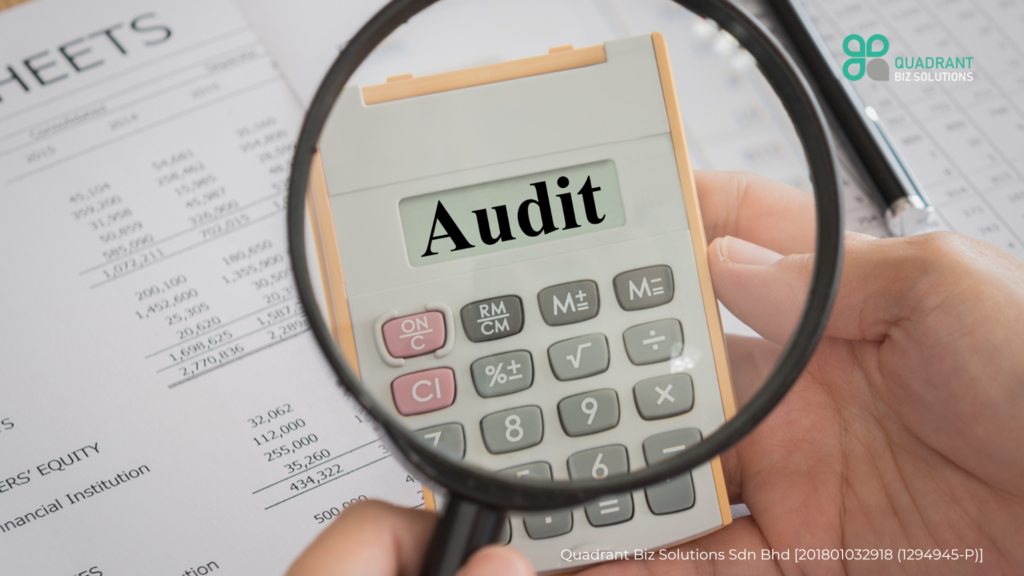
On 16 December 2024, the Companies Commission of Malaysia (SSM) issued Practice Directive 10/2024, introducing new qualifying criteria for audit exemption. These exemptions are designed to reduce the regulatory and compliance burden for micro, small and medium-sized enterprises in Malaysia while maintaining transparency and regulatory compliance. This Practice Directive is applicable for private companies (Sdn Bhd) for financial statements with annual period commencing on or after 1 January 2025.
Accordingly, the Practice Directive 3/2017 issued by SSM on 4 August 2017 will be revoked but shall continue to apply to financial statements with financial period commencing on or before 31 December 2024 prepared by companies as though this Practice Directive 10/2024 has not been issued.
Who qualifies for new audit exemption criteria?
A company may apply for the audit exemption if it fulfils any two (2) of the three (3) specified criteria below. However, the said criteria do not apply to a foreign company, a public company, an exempt private company and a private company that is a subsidiary of a listed company.
Qualifying Criteria:
(a) The annual revenue of the company during the current financial year and in the immediate past two (2) financial years do not exceed RM3,000,000;
(b) The total assets of the company in the current statement of financial position and in the immediate past two (2) financial years do not exceed RM3,000,000; or
(c) The number of employees at the end of the current financial year and in the immediate past two (2) financial years do not exceed thirty (30).
Implementation
The threshold criteria for audit exemption will be implemented via a phased approach over a period of three (3) years (2025 – 2027), with increasing thresholds for revenue, assets and number of employees as follows:
Year | 2025 (Phase 1)
| 2026 (Phase 2) | 2027 (Phase 3) |
Financial period | Commencing on or after 1 January 2025 until 31 December 2025 | Commencing on or after 1 January 2026 until 31 December 2026 | Commencing on or after 1 January 2027 |
Submission year | Beginning from 1 January 2026 | Beginning from 1 January 2027 | Beginning from 1 January 2028 |
Thresholds : | |||
· Turnover | RM1,000,000 | RM2,000,000 | RM3,000,000 |
· Assets | RM1,000,000 | RM2,000,000 | RM3,000,00 |
· Number of Employees | 10 | 20 | 30 |
Note:
The annual revenue, total assets and number of employees for the immediate past two (2) financial years must not exceed the maximum threshold specified for the respective corresponding phase.
Other Conditions
Companies which are dormant since the time of incorporation, and companies which are dormant during the current and immediate past financial year continue to be exempted from audit requirement.
Documents to lodge if company elects audit exemption
A company that has elected to be exempted from audit must lodge its unaudited financial statements with the Registrar accompanied with the required certificate in compliance with the Companies Act 2016.
Overriding requirement to audit
Notwithstanding the provisions in the Practice Directive 10/2024, a company that is eligible for audit exemption shall be required to audit its accounts if it receives a notice in writing requiring the company to audit its accounts during a financial year but not later than one month before the end of that financial year from:
(a) any member or members eligible to vote and holding in aggregate of not less than 5% of the total number of issued shares of the company or any class of those shares;
(b) not less than 5% of the total number of members eligible to vote in of the company; or
(c) the Registrar who directs the company to have its accounts audited.
Frequently asked questions
To assist in the understanding of the provisions in Practice Directive 10/2024, the Registrar has issued a new Part Q to the Frequently Asked Questions on the Companies Act 2016 and Transitional Issues. Part Q can be accessed in the link below:
https://www.ssm.com.my/Pages/Legal_Framework/Document/FAQ-AUDIT-EXEMPTION.pdf
Conclusion
The Practice Directive 10/2024 significantly reduces the compliance burden for private companies, particularly, micro, small and medium-sized enterprises in Malaysia. However, qualifying companies must carefully assess their eligibility on an annual basis and ensure all statutory requirements are met. Consulting with licensed accountants or company secretaries is advisable to navigate the process correctly and avoid compliance pitfalls.
Need guidance on whether your company qualifies for audit exemption or how to comply with SSM filing requirements?
✅ Contact us today! Our experienced corporate compliance and accounting professionals
